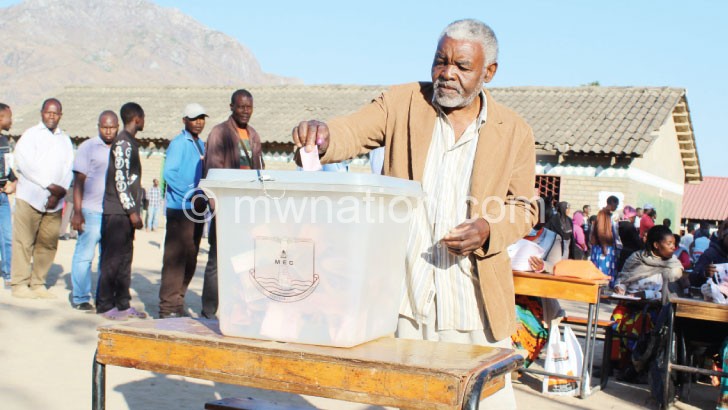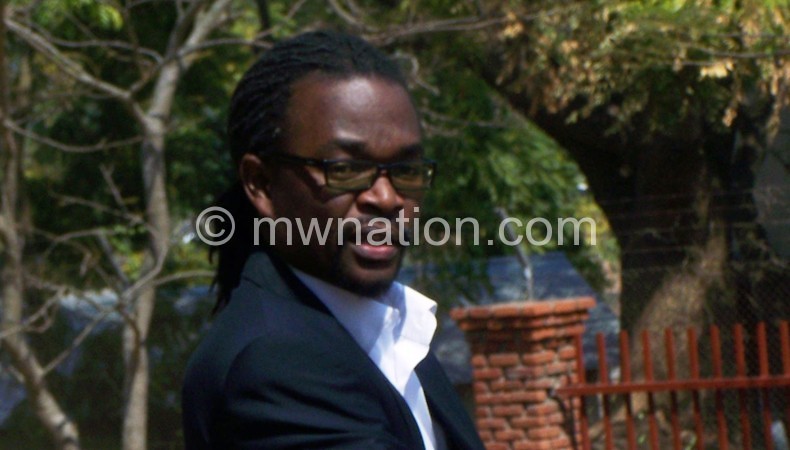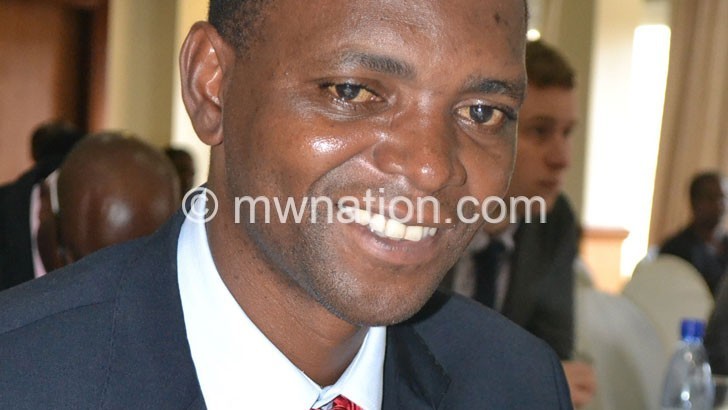Lawyers revive 50%+1 debate
- Fault courts for failing to show context on use of ‘majority
Three lawyers have faulted the High Court of Malawi sitting as a Constitutional Court and the Malawi Supreme Court of Appeal for interpreting majority to mean 50 percent-plus-one vote in electing the country’s President.

In their legal analysis titled ‘The Nullification of the 2019 Presidential Election in Malawi: A Judicial Coup d’État?’ University of the Free State extraordinary professor Mwiza Jo Nkhata, United Nations Office of the High Commissioner for Human Rights human rights officer Anganile Mwenifumbo and Mbendera & Nkhono Associates partner Alfred Majamanda argue that both courts drew definitive inspiration from parliamentary practice in Malawi which requires all ‘majority’ decisions to be made using a 50 percent-plus-one vote formula unless a special majority is expressly stipulated.
In their interpretation of Section 80 (2) of the Constitution, both courts said the provision states that the President “shall be elected by a majority of the electorate through direct, universal and equal suffrage”.
But in their analysis, the three argue that the term ‘majority’, as used in the Constitution in relation to Parliament, largely addresses the conduct of parliamentary business, mostly voting on Bills and other issues.

Reads the analysis in part: “As used in Section 80(2), the term speaks to the election of a President. These two processes have distinct levels of solemnity.
“Both courts may have forcibly assumed the same meaning for the term ‘majority’ even though the context in which it is used, including within the Constitution,are varied.
“At the very least, both courts are guilty of failing to demonstrate an awareness of the contextual nuances in the use of the term ‘majority’ across the Constitution which appears at least 15 times in the Constitution.
“Only an analysis of all these contexts could properly support the finding that the same meaning is intended across the Constitution.”
They further argue against the court’s notion that it was ‘absurdity’ to elect a President with a numerically insignificant share of the votes, for example, 10 percent of the total votes, on the premise that it undermines the notion of majority rule in a democracy.
In its ruling on an appeal of the Constitutional Court judgement that nullified the May 2019 presidential election, the Supreme Court noted a possibility that the highest vote could be as little as 10 percent of votes at the polls. The court said it would be absurd to imagine that 10 percent of the votes at the polls would be said to be majority vote for the election of a person to the high office of President.

Reads the Supreme Court ruling: “We are in no doubt that the correct meaning to be ascribed to the word ‘majority’ in Section 80 (2) of the Constitution is 50 percent-plus-one votes of the voters who voted in the election.
“It is an interpretation that would not lead to any absurdity in so far as Presidential election under Section 80 (2) of the Constitution is concerned.”
But the three analysts argue that the interpretation by both courts failed to appreciate that a plurality system is, inherently, not less democratic than a majoritarian system.
The analysis reads: “If the Constitution had intended to create a majoritarian system, this would have been clearly spelt out by including provisions governing a run-off should no candidate attain the stated 50 percent-plus-one majority of votes cast, and not left for conjecture.
“Both courts may also be guilty of usurping Parliament’s legislative function in changing the electoral system because the lapses earlier pointed out suggest an incorrect interpretation of the term ‘majority’.”
They also argue that the change of the electoral system adds another layer of complexity if Parliament failed to pass the run-off provisions and no candidates in future elections attained a 50 percent-plus-one majority of votes during the first round of polls.
This, they say, would create an electoral impasse because the Electoral Commission cannot hold a run-off without any legislative mandate and guidance.
The ‘majority’ question was first determined by the Supreme Court of Appeal in 2000, in the case of Chakuamba and Others v Attorney General and Others.
That time, the court stated that “the meaning to be ascribed to Section 80(2) as presently stated and the context in which that word is used in other parts of the Constitution and having regard to the general purpose of the Constitution can only mean that the word ‘majority’ means ‘a number greater than’ a number achieved by any other candidate.”
But Catholic University of Malawi dean of law John-Gift Mwakhwawa said in an interview the analysis remains an academic opinion and cannot change the determination of the courts.
He said: “I think it is an academic opinion and people are free to express their legal opinions and views. Whether that academic opinion would persuade any court to agree with it, is a different question altogether.
President Lazarus Chakwera of Malawi Congress Party and Vice-President Saulos Chilima of UTM Party dislodged former president Peter Mutharika of Democratic Progressive Party who teamed up with United Democratic Front president Atupele Muluzi in the June 23 2020 Fresh Presidential Election.
The election followed declarations by both the Constitutional Court and Supreme Court, which nullified the May 2019 presidential polls over a plethora of irregularities. Chilima and Chakwera petitioned the court to nullify the election over irregularities, especially in the results management system.





